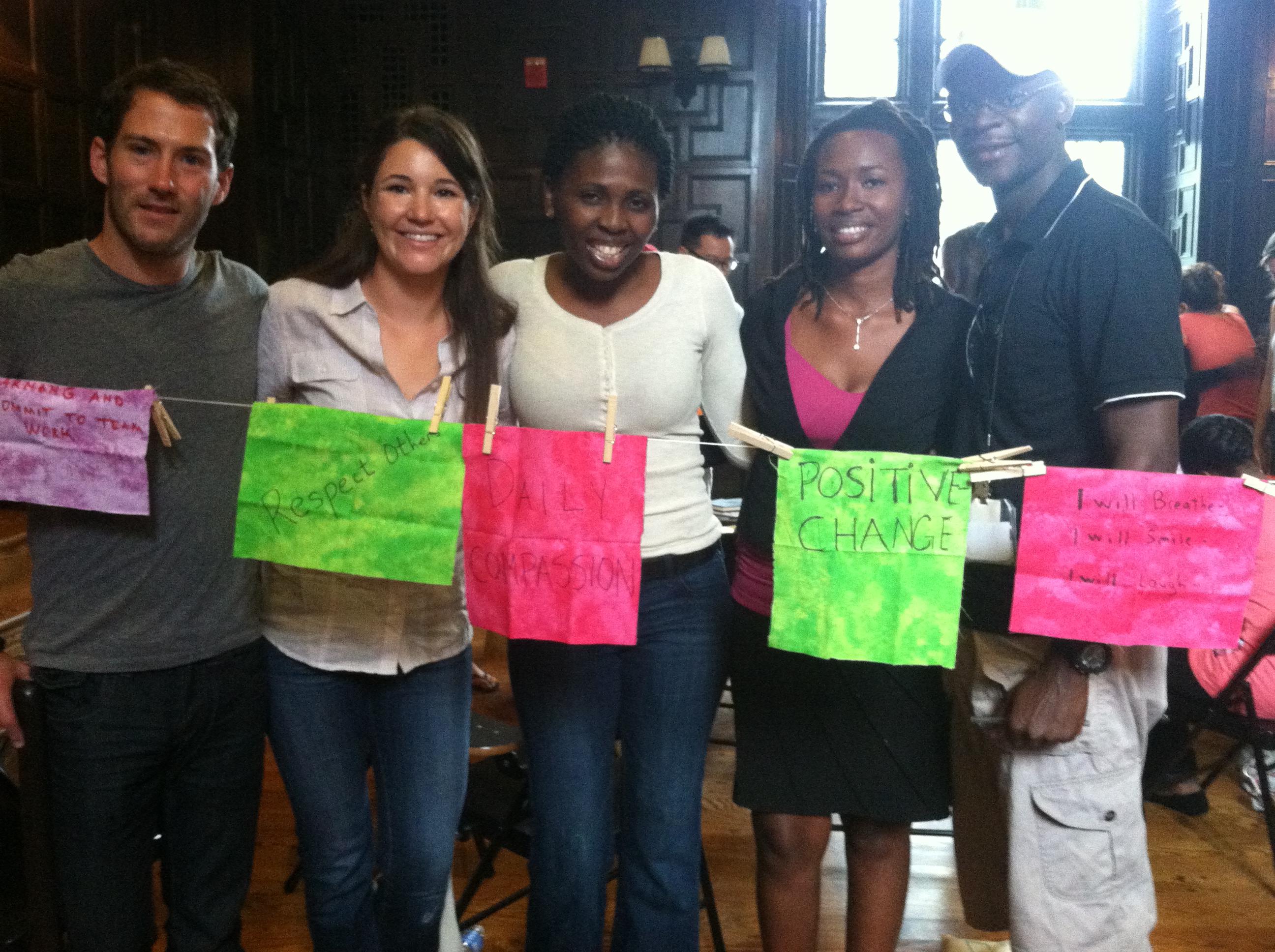
Remember these? Exactly one year ago we sat down at Yale University and wrote down our “intentions” for our Global Health Corps fellowship year on brightly colored scraps of fabric. It was stunning to see the rainbow of intentions that we each committed to. My intention was to practice “Daily Compassion.” Over the last year, and especially now, as I prepare for transitioning out of the Fellowship and on to my next adventure, I’ve spent a lot of time thinking about how this intention has played out. The reality is that this intention was incredibly ambitious, at times impossible, and at times astoundingly simple. Every day seemed to bring a new way to practice my intention, or a new way to test that practice. Just for fun, I’ve come up with 5 lessons about practicing daily compassion that I’ve learned during my fellowship year in Zambia:
- First and foremost, you have to practice compassion towards yourself. Translation: If you ate an entire box of Mac N’ cheese by yourself that your mom shipped from the U.S. because your scope of work isn’t “working out,” you simply say, “That’s ok, self. Work is hard. And Mac N’ Cheese makes you feel good. Keep at it.”
- Sometimes the person who is showing you the least compassion is the one that is in need of your compassion the most. Translation: If your boss is driving you crazy, keep being patient, because I promise you this person has something to teach you.
- Compassion, like empathy and deep listening, is a skill to be studied, learned, and practiced – over and over again. Translation: Just because you patted yourself on the back that one day when you “rose above” and put yourself in someone else’s shoes, doesn’t mean you are set in the compassion arena. You need to have a way of reminding yourself to practice every single day (hence the “daily” part of my intention).
- True compassion requires vulnerability. Translation: If you are home sick, irritable, and frustrated by the pace of progress, it is ok to say to your co-fellow, “I’m having a rough time. I need your support.” You’ll find that there is whole lot of compassion waiting for you on the other side.
- You don’t have to be a guru or a saint or enlightened to practice compassion. Translation: Compassion can be practiced simply by saying, “How are you?” But the trick is, you can’t just say “How are you?” out of habit, without truly recognizing the person. Instead, you need to stop — look them in the eyes, and recognize them as a being just like you, far more similar than different.
